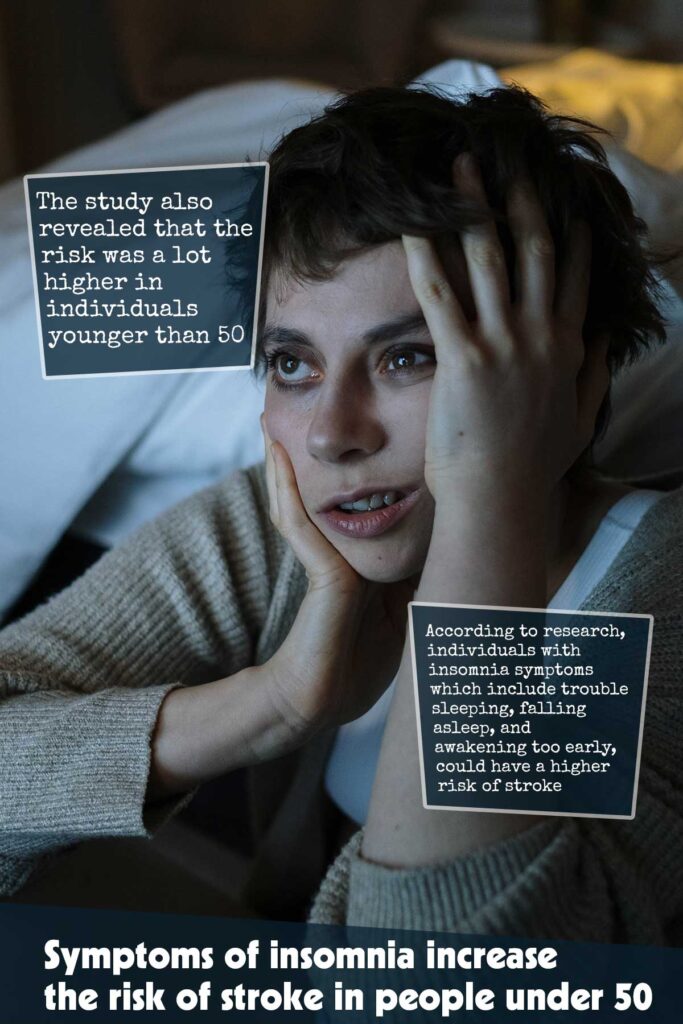According to research, those experiencing insomnia symptoms such as difficulty sleeping, difficulty falling asleep or awakening too early could have an increased risk of stroke.
The study also demonstrated a much greater risk among individuals younger than 50. While this does not prove that symptoms of insomnia lead directly to stroke, only that they exist as an association.
There are numerous therapies that could help individuals improve their sleep quality, and identifying which sleep issues contribute to an increase in stroke risk can enable earlier behavioral therapies or treatments for those experiencing sleeping issues that could reduce future stroke risks.
This study involved 31,126 participants averaging 61 years old who didn’t have a history of stroke when the study started.
Individuals were asked four questions concerning how often they experienced difficulty falling asleep, waking during the night, awakening too early and not being able to return back to sleep and whether or not they felt rested when awakening the next morning.
Response options were most of the time, occasionally or rarely or never. Scores ranged from 0-8 with higher numbers indicating more severe insomnia symptoms.
Individuals were monitored for 9 years on average. Over this timeframe, 2,101 stroke cases were recorded.
After considering other variables that could influence stroke risk such as smoking, alcohol use, and physical activity levels; individuals with 1 to 4 symptoms of insomnia had an 16% increased stroke risk compared to individuals without any signs of insomnia.
19149 individuals experiencing 1 to 4 symptoms of insomnia experienced a stroke; out of 6,282 without insomnia symptoms 365 experienced one as well. Individuals with 5-8 insomnia symptoms had a 51% increased risk for stroke; 436 out of 5,695 with this diagnosis experienced it themselves.
Individuals younger than 50 showed an even stronger correlation between stroke risk and insomnia symptoms; those who reported five to eight symptoms had almost four times greater stroke risks than individuals without any signs of insomnia.
From among 458 individuals under age 50 with 5 to 8 symptoms of insomnia, 27 experienced a stroke. Individuals 50 or over who also exhibited this number had a 38% increased risk of stroke compared to individuals without symptoms at all – out of 654 such people, 33 experienced one as well.
This difference could be explained by an increasing incidence of stroke as people age; risk factors like diabetes and hypertension increase with age – making insomnia symptoms one of many possible factors behind its increase.
This data suggests that treating insomnia early could be an effective strategy for avoiding stroke, particularly among individuals suffering from depression, cardiovascular disease, high blood pressure or diabetes. This relationship becomes even stronger among those diagnosed with depression, cardiovascular disease or high blood pressure as well as those living with high blood pressure or diabetes.
One limitation of this study was its self-reported nature; therefore, some information may have been inaccurately reported.




